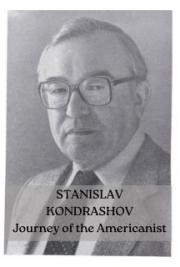XXIV
THE account of our Swiss summer ought properly to end with our trip over the Strahlegg. It was certainly the climax of our experiences. I do not know that any earthly inducement could persuade us to repeat that trip (I speak with certainty in my own case). But, having done it, and having come through alive, we would not for the world be without the thrilling memory of it.
Biner said that after our late trip under the existing conditions, we would find the ascent of either the Jungfrau or Wetterhorn very easy, and he would like to take us up. But we were willing—oh, quite willing—to take this easiness on faith. We had not forgotten that he had also called the Strahlegg easy in advance. And Providence does not like to be tempted too often.
There was just a week from the day of our return till the day of Frater’s leaving us to catch a steamer in Genoa, and just another week till we should all leave.
The first thing we wanted was rest in wholesale quantities and the doctoring of feet and fingers.
Emerging from this, we chose the second day for the celebrating of my birthday, which it had not been feasible to do on the proper date. I was the recipient of some very delightful gifts, including an elaborate pyramidal bouquet, with an accompanying note of pleasant sentiments from Suzanne and Anna. Belle Soeur made one of her famous cakes and the candles were sprinkled on top with appalling thickness—a perfect forest of them.
The birthday dinner turned itself, quite unexpectedly, into a fancy dress affair. I was making my toilet for it on the usual lines and had reached that point in my coiffure, when my chevelure was disposed in two long ringlets hanging down each side of my face and neck. I had just picked up my comb to run through them, when the Elder Babe, coming into the room on some errand, began to call out frantically, “Don’t, don’t touch those curls, Mother! Leave them just as they are! Come to dinner that way! You look just like a little girl!”
I smiled and picked up the comb again, but I had miscalculated the seriousness of my son’s enthusiasm. He rushed to the sitting-room door and called his grandmother, aunt and uncle to his assistance. “Come and look at Mother! Don’t let her comb out those curls! Make her come to dinner that way!” He was prancing around like a little bacchante in the joy of the thought.
The three grown-ups appealed to entered into the spirit of the occasion and backed him up. I yielded the point, gracefully I trust, but stipulated that if I was to have a little girl’s coiffure I would wear a little girl’s dress. Belle Soeur offered me her stock of lingerie to select from, it being more ornamental than mine, and I was soon arrayed in a very dainty lace-trimmed white gown with low neck, short sleeves, and a skirt slightly below the knees. With the addition of silk hose and shoon, a sash, shoulder knots and hair ribbons, all of pink, I really wasn’t such a bad-looking little girl!
We had a very merry, foolish, light-hearted evening, the children being in ecstasies over this new effect in mothers, and the servants almost equally so.
This sportive little festival seems to me now like something that happened in another incarnation. It required the absolutely perfect physical condition we had all reached by then and the effervescence of the mountain air to make it possible. But it was the last exuberance.
The season was nearly over. We were soon going back to the world of commonplace. With what reluctant melancholy we clung to those last days, trying to stretch out the hours past their natural limit!
One day Frater and I went to Interlaken for some shopping. He walked both ways, but I went down by train. We were late starting back and wasted a mile or so by attempting a short cut as we left the town. During the summer the long, long twilight had been a noticeable feature. It was still daylight at nine o’clock. But now it got dark by seven or before and the last hour of our walk was in such inky darkness that we could scarcely make out the highroad in front of our feet. We saw the lights of the village glimmering a welcome long before we reached it, and had developed a wonderful appetite for our belated dinner by the time we arrived at the châlet.
Another day we made our long-projected trip to the Lauterbrunnen valley. It was one of those things so perfectly easy to do that all summer long we had not done it. Frater and I walked over the divide by way of the Männlichen, where we ate our lunch and bade an affectionate farewell to that grandest of panoramas, passing down the other side through Byron’s Wengern Alp to the village of Lauterbrunnen, where at tea-time we met the Mother, Belle Soeur and the Elder Babe, who had come by train. The Mother was the only member of the crowd who felt wealthy enough to take the trip to Mürren, a summer resort on a great cliff overlooking the Lauterbrunnen valley on the far side, commanding a fine view of the Jungfrau, with the deep valley well in the foreground. It is reached by a very steep-grade cable and electric railway. The rest of us contented ourselves with walking to the Staubbach Falls.
The waterfalls of the Lauterbrunnen valley have a great reputation, as they drop over a cliff about a thousand feet high and turn to spray long before they reach the bottom. But their volume is so insignificant that they are little more than a silver ribbon, and while interesting, they are certainly not equal to their reputation. The great falls of the Yosemite (to which they are often compared) would dwarf them utterly.
We all walked together down the Interlaken highroad, turning back frequently to watch the sunset lights on the Jungfrau, to the joining of the Lauterbrunnen and Grindelwald valleys, where we boarded the train for home.

Lauterbrunnen
This was our very last excursion. There were a few things we had meant to do and hadn’t had time for, chief of them the ascent of the Schwarzhorn, a nine-thousand-foot peak behind us, to the east of the Faulhorn. It might at this time have been more appropriately named Weisshorn, for the autumn snows had covered all its black rock ledges. Belle Soeur and I had a notion we might still do it alone during the week after Frater left. But we didn’t. And there had been a great many things that we had intended to do over again, but found no time for.
Before we knew it, it was October 3rd, and we were seeing off Frater at the station.
I must not forget about the conveyance of his baggage thither. He and Antonio had brought no trunks with them, but each had a large telescope bag, which held as much as a small steamer trunk. When Antonio left, he had hired a lad with a hand cart, who lived in a châlet to the rear of us and was one of a large and impecunious family who liked odd jobs and old clothes and the left-overs from our table, to take it to the station for him. The day before Frater’s departure, we told Anna to engage the lad again. What was our surprise, as the time drew near to leave for the station, when there appeared, instead of the boy and his cart, his fourteen-year-old sister with a rack on her back. She explained that her brother and the cart had an all-day’s job, and she had come in his place to take the gentleman’s valise to the station. The poor girl already had her shoulders curved by the carrying of burdens. It seemed brutal to let her do it, yet even more so to deny her the chance of earning a little money. Besides, it was quite too late to get any one else, and Frater admitted that he was unequal to carrying the thing a mile and a half. So off we trudged in a procession, the young portress bringing up the rear, and we told Frater this little service from a member of the “housely herd” furnished the fitting last touch of “local color” to his Swiss summer.
Our last week was given over to packing and paying bills and cleaning house and all sorts of prosaic last things. I do not remember that we went anywhere except to the Upper Glacier and the village. I do remember the snow though. We had said many times during the season that we wished we could see our beloved Grindelwald valley in its winter dress, but we hardly expected our wish to be granted. It was, though, most fully, and with effects unspeakably beautiful. We had a regular roaring blizzard for about three days, during which we kept the cylinder stove in the lower hall burning furiously, and abandoned the second story as uninhabitable. I fancy the owners do the same in the winter. The little hall stove and the kitchen stove can hardly be said to have kept the lower story comfortable. We could still see our frosted breath. But they made life endurable.
When it cleared off, we looked out at a veritable fairyland. All the world was buried under at least a foot of the purest white snow imaginable. Every tree was bending its branches beneath the burden of it. The mountains were dazzling. Even the rocky cliffs of Wetterhorn and Mettenberg had the soft white powder adhering to their perpendicular surfaces. If we had had any way of keeping ourselves even half-way comfortable indoors, I do not see how we could have torn ourselves away from it!
I regret to have to chronicle that our last hours were marred, beyond the inevitable sadness of parting and the inevitable fatigue of packing, by the inexplicable conduct of the Herr Secundärlehrer and his Frau. It is the well-known habit of landlords on the continent to run up a bill on their tenants for breakage, wear and tear, and “extras” limited only by their idea of the workableness of the persons they are dealing with. But the Herr Secundärlehrer and his wife had seemed so utterly honest and straightforward, so trusting and unmercenary, that I had no anticipation of anything of the sort from them. They had not wanted a lease or an inventory or their money in advance or any of the things the typical landlord looks out for. They had declined payment for ever so many things that they might legitimately have taken it for. So it was a shock when the bill came in.
I had had great difficulty in getting it. They were evidently saving it for the last moment. Finally, after repeated requests and messages on my part, it was handed through the kitchen window by the Frau to the cook late Saturday evening, the Frau immediately vanishing into the darkness.
The Mother, Belle Soeur and the Elder Babe were leaving Sunday morning early with most of the baggage. Suzanne, the Younger Babe, and I, after the last house-cleaning, were to leave by the same early train Monday, rejoining the others at Lucerne. All day Sunday I tried to get hold of either the Secundärlehrer or his wife. I was told that he was sick—that he was asleep—that his wife was busy. Finally, after an especially emphatic message, late in the afternoon, the Secundärlehrer appeared, looking very much the worse for wear (as was sometimes the case with him on Sunday, I regret to say, after a convivial Saturday evening with cronies in the village) and in a very bearish humor.
I have always been of the opinion that his wife did not approve of the bill and kept away because she was ashamed. Certainly she never appeared again on our horizon to say good-bye, and I had to send the keys to her by Anna when we left. I am also of the opinion that the Secundärlehrer had been put up to that bill by some of his worldly-wise friends in the village and coached what to say when I objected.
The bill was about three-quarters of a yard long, and though it was not very enormous in its sum total (the extras were inside of a hundred francs), many of the items were so preposterously unjust that one could hardly accept them meekly.
One of the foremost was the bath tub. I think it was twenty francs that was put down for the use of it. The bath tub was a full-sized porcelain-lined one which the Herr had ordered in a spasm of modernness before he rented the house to us, but which arrived only after our installation. They put it down outside the house and left it there for some days till I made inquiries. The Herr explained to me that he thought every progressive family should own a bath tub and that he had intended putting it in the little room opening off the kitchen. This was the only place we had to keep provisions in, the kitchen itself being quite too tiny, and I really couldn’t give it up, but my soul yearned for that bath tub. The Herr then suggested that it could be put up on the porch (the one we did not take our meals on), connected with the water faucet in the kitchen by a length of garden hose, and surrounded by curtains. He said his wife would see to the curtain part if we would permit them to bring their children over once a week for a bath. It was so arranged, and a very funny out-door bathroom it was. The children of the neighborhood were so much interested in its workings that one felt little privacy inside, even after having sent Anna out to shoo them away and expended a paper of safety pins on the blowing curtains. When I objected to being charged for this luxury, the Herr informed me that at a hotel we would have had to pay a franc apiece for every bath we took, at which rate it would have amounted, in the course of the season, to much more than twenty francs. He knew this was so, because he had once taken a bath at a hotel and been charged a franc.
The item of cellar rent was another which I objected to. There was a small cellar under the rear part of our house which I had said I must have the use of when negotiating. It was much encumbered with many things which they said they could not move out, but we were quite welcome to use it too. After about a month they told Anna that this joint use was inconvenient to them and that they would give us a cellar room to ourselves under the neighboring school-house. It gave Anna a great many extra steps going over there for milk and other supplies, but she bore it patiently in order to be obliging. But to be charged extra for the discomfort was trying!
When I voiced this sentiment, the Herr Secundärlehrer launched forth into a most extraordinary tirade about having lost several hundred francs from the wine he had bought to sell to me, which I had not purchased, and his great magnanimity in not putting this on the bill. This was so unaccountable that I could hardly believe my ears. “But I never authorized you to buy any wine for me,” I naturally protested. “Of course you didn’t,” was his astounding reply, “you were entirely too clever to do that.” Considering that this was the first time the subject of his selling wine to me had ever been broached, this was to say the least puzzling. Was it just plain bluff and bluster to divert attention from the items on the bill, or is there some unwritten law in the Oberland that you buy wine from your landlord when you rent a house?
I cut the interview short, rather glad that I did not understand all the words he had used, paid the somewhat diminished bill, and had the landlord shown out. Far worse than the mere disagreeableness of it, was the blow to my ideals of these simple, honest people. And yet I will not believe that I had been altogether mistaken in my first estimate of them. Their education was a somewhat superficial matter. The peasant nature, with all its suspiciousness of the foreigner as such, its obstinacy and intolerance, was very close to the surface under the Herr Secundärlehrer’s thin veneer of culture. I have an idea that he suspected me of having known at the beginning that Frater and Antonio were coming and kept it from him, though as I offered when I informed him of their prospective visit to pay him either a lump sum extra or lodging rates according to the time of their stay, as he preferred, it is a little hard to see wherein he could have thought advantage was taken of him. However, I suppose it came somehow under the head of my unprincipled cosmopolitan cleverness.
Whether it was this or whether it was some other thing, I am sure he had had his feeling of ill usage inflamed by village cronies, grown worldly-wise among the tourists, and was led to believe by them that any weapon would do for getting even. Here is where I think his wife, a much stronger and finer character than he, disapproved. I think she held more or less unflattering views of us (our ways of life were very different from hers,) but I believe she felt it unworthy to embody her disapproval in the bill. While she never appeared again, she did one or two nice little things at the end for our comfort which made us feel she was trying to make up.
If this was a story, it would never end like this—the merry company scattered, the green summer gone, the honest couple who should have been our friends turned into suspicious hostiles, keeping out of sight and churlishly avoiding a farewell, the gray cold early dawn, Anna with her belongings heaped on the porch, tearfully bidding us good-bye and waiting to turn over the keys to the Frau Secundärlehrer, whom she was deadly afraid of, Suzanne, the Younger Babe and I, all bundled up in winter wraps climbing into the Red-headed Man’s carriage, and driving off to the station over the creaking snow, while all the valley and all the mountains lay hushed in still white slumber.
But this is not a story. It is a simple chronicle of facts, which I have told as they happened, the bad with the good, the sordid with the beautiful. And this was really the END.








